Jan 26, 2022 | Constitutional Rights, Discrimination, Employee Rights
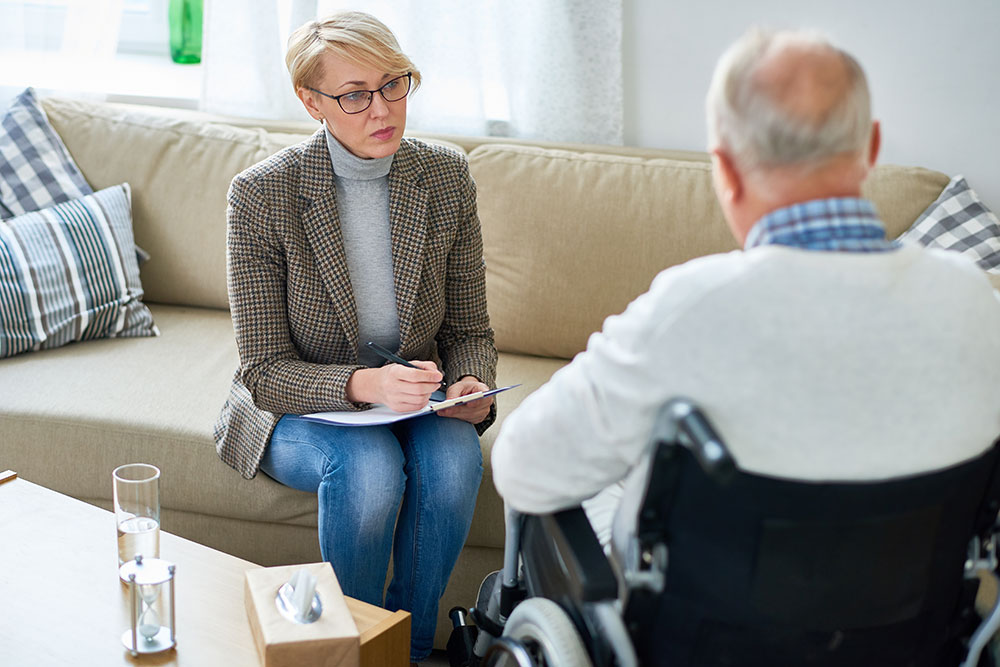 Regardless of whether you are a member of a protected class or not, it’s important to understand the anti-discrimination laws and how they have changed over the years. In Colorado, the main one is the Colorado Anti-Discrimination Act (CADA). It originally passed in 2013 and additions to it went into effect on January 1, 2015. The main difference between CADA and the federal anti-discrimination laws is that CADA applies to all Colorado employers no matter how few employees they have. Most of the federal laws only apply to employers with at least 15 employees.
Regardless of whether you are a member of a protected class or not, it’s important to understand the anti-discrimination laws and how they have changed over the years. In Colorado, the main one is the Colorado Anti-Discrimination Act (CADA). It originally passed in 2013 and additions to it went into effect on January 1, 2015. The main difference between CADA and the federal anti-discrimination laws is that CADA applies to all Colorado employers no matter how few employees they have. Most of the federal laws only apply to employers with at least 15 employees.
What does the Colorado Anti-Discrimination Act cover?
The Colorado Anti-Discrimination Act makes it illegal for employers to discriminate against an employee on the basis of disability, race, creed, color, sex, sexual orientation, religion, age, national origin or ancestry. It also guarantees equal access to public accommodations and housing. Public accommodations include most businesses that offer products or services to the public, such as restaurants, retail stores, health clubs, and even hospitals and clinics. In Colorado, it’s illegal for one of these places to deny someone the available goods and services because they are a member of any of the protected classes listed above. The part of the law that covers housing protects those same people from discriminatory financing, refusal to rent, unequal terms and conditions, failure to provide reasonable accommodations for disabilities, and retaliation for exercising these rights.
Some of the changes that were added in January 2015 include:
- Employees can now file discrimination lawsuits under state law vs. federal law.
- In addition to back pay and equitable relief (i.e. reinstatement), employees can now seek to recover punitive and compensatory damages such as emotional pain and suffering, mental anguish, loss of enjoyment of life, inconvenience and other losses not directly relating to or consisting of money (a.k.a. non-pecuniary losses).
- The courts now have the discretionary power to award aggrieved employees attorneys’ fees, as well as various fees and cost associated with the actions.
- Employers may be awarded attorneys fees and costs, but only if the court deems the case to be groundless, vexatious, or frivolous.
- Either the employer or the employee can now demand a jury trial.
- To be more in line with federal age discrimination law, there is no longer a maximum age for employees to make a discrimination claim.
What is the process for filing anti-discrimination complaints?
With all of these new laws, it is important to remember that there is a statute of limitations (time limit) from the date of the last alleged discriminatory and/or retaliatory act for when you must file a complaint:
-
Employment filing deadline: six (6) months from the act of alleged discrimination (possibly up to 300 days for federal matters)
-
Housing filing deadline: one (1) year from the act of alleged discrimination
-
Public Accommodations filing deadline: sixty (60) days from the act of alleged discrimination
Therefore, if you feel that you have been discriminated against, it is important to act fast. If you choose to file a complaint yourself, you can read the steps for the Complaint Process online with the Colorado Civil Rights Division, under the Colorado Department of Regulatory Agencies, or DORA. There are different filings that need to happen before these deadlines, so it is important to start as early as possible. And whether you file yourself or get legal representation, know that the Division has 270 days to complete their administrative process (with 90-day extension requests available to both parties) so it can take a while to resolve.
Who can help me with anti-discrimination lawsuits?
The other option is to consult an attorney who is experienced with not only the deadlines and filing procedures, but also all of the state and federal anti-discrimination laws that may apply to your case. If you believe you are the victim of discrimination, it’s important to act quickly and to gather as much evidence as you can, and then contact a local civil rights attorney who can advise you on your case. The Civil Rights Litigation Group has successfully handled many anti-discrimination cases over the past 10 years and we are 100% dedicated to civil rights issues. We offer free consultations so you can find out if you have a legitimate case. Please call us at 720-515-6165.
Call 720-515-6165 for a free consultation.
Related blog posts on this topic:
How to spot workplace discrimination
Speaking up about workplace discrimination
Sexist language and subtle discrimination
Is there such a thing as pregnancy discrimination in the workplace?
I filed an age discrimination lawsuit: What questions will I be asked?
What proof do I need for age discrimination lawsuits in Colorado?
What is the burden of proof in a religious discrimination lawsuit
Discrimination in Denver
Is it discrimination? A few questions you need to ask
Oct 13, 2021 | Civil Rights Law, Constitutional Rights, Discrimination
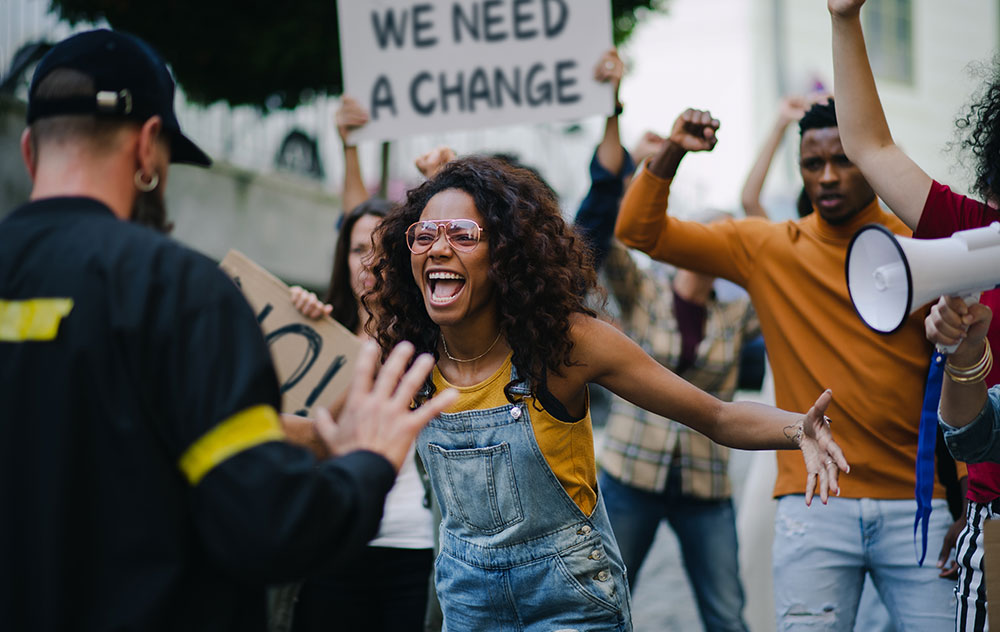 We often hear people talk about civil liberties and civil rights and how they are being violated, but do you actually know what they really are and what they afford you as an American? Simply put, they are the personal rights that are guaranteed by the U.S. Constitution and other federal laws enacted by Congress. They are designed to recognize the free-decision making required for individual autonomy and provide all Americans equal social opportunities and equal protection under the law regardless of race, religion, gender, age, or other personal characteristics. Aside from the rights and liberties expressly spelled out in the Bill of Rights, they include things like the Civil Rights Act of 1871, the Civil Rights Act of 1964, and the Americans with Disabilities Act of 1990.
We often hear people talk about civil liberties and civil rights and how they are being violated, but do you actually know what they really are and what they afford you as an American? Simply put, they are the personal rights that are guaranteed by the U.S. Constitution and other federal laws enacted by Congress. They are designed to recognize the free-decision making required for individual autonomy and provide all Americans equal social opportunities and equal protection under the law regardless of race, religion, gender, age, or other personal characteristics. Aside from the rights and liberties expressly spelled out in the Bill of Rights, they include things like the Civil Rights Act of 1871, the Civil Rights Act of 1964, and the Americans with Disabilities Act of 1990.
In the U.S., federal and state law has been enacted to prohibit discrimination based on protected-class characteristics (such as race, color, religion, creed, national origin, ancestry, gender, sexual orientation, pregnancy, age, disability, etc.) when it comes to things like education, employment, access to public assistance and facilities, housing, or healthcare, just to name a few. The great thing about our Constitution and our system of laws is that it’s possible to make changes over time to correct or add things the original framers didn’t necessarily take account of or which were against social norms in the 1700s. One big example is slavery, which was still legal in 1776 and widely practiced in the South. That civil rights change only came about because of the Civil War and even then people have had to continue to fight so that people of color would eventually be given the same rights and the same treatment as others. Other civil liberties and civil rights have been secured either by new legislation or court cases providing precedence. But all of these require continued vigilance and enforcement through litigation.
What’s the difference between civil liberties and civil rights?
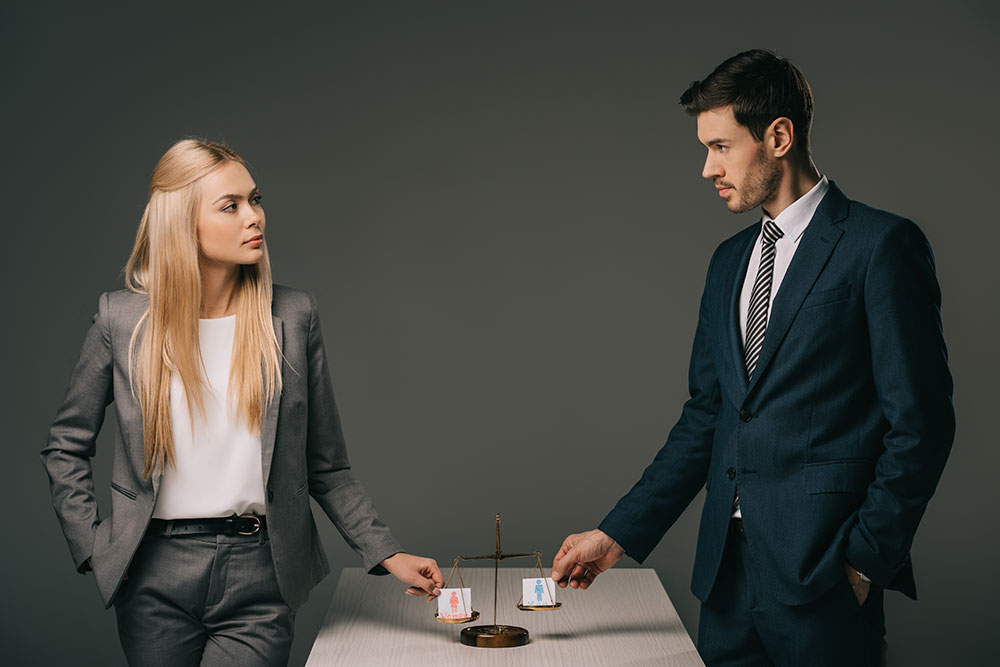 While the term “civil rights” generally refers to a broad scope of civil liberties and civil rights that persons in this country possess by virtue of restraint on our government, technically speaking, there are differences. Civil liberties specifically refer to basic freedoms enshrined in the Bill of Rights that create a space of freedom in which government actors are not supposed to encroach upon, while civil rights include not only space within which governmental actors should not encroach, but also affirmative laws that impose practical requirements to protect from discrimination. Many of your civil liberties are guaranteed by placing limits on what the government can do to you, such as limit your freedom of speech or imprison you without proper cause. Other civil liberties include the right to privacy, the right to remain silent, the right to a fair trial, and the right to vote, something that both women and people of color had to fight for as they were not similarly recognized in the original Constitution. Most recently, the LGBTQ community fought to guarantee the right to marry for same-sex couples, a civil liberty the original framers would likely not have ever formally considered.
While the term “civil rights” generally refers to a broad scope of civil liberties and civil rights that persons in this country possess by virtue of restraint on our government, technically speaking, there are differences. Civil liberties specifically refer to basic freedoms enshrined in the Bill of Rights that create a space of freedom in which government actors are not supposed to encroach upon, while civil rights include not only space within which governmental actors should not encroach, but also affirmative laws that impose practical requirements to protect from discrimination. Many of your civil liberties are guaranteed by placing limits on what the government can do to you, such as limit your freedom of speech or imprison you without proper cause. Other civil liberties include the right to privacy, the right to remain silent, the right to a fair trial, and the right to vote, something that both women and people of color had to fight for as they were not similarly recognized in the original Constitution. Most recently, the LGBTQ community fought to guarantee the right to marry for same-sex couples, a civil liberty the original framers would likely not have ever formally considered.
Affirmative civil rights laws beyond those contained in the Constitution, such as Title VII, are designed to protect people from discrimination in not only the public sphere, but also the private sphere. For example, an employer (whether government or private corporation) can’t lawfully choose to promote only the men in the company, or layoff people just because they are over 50. Women can no longer be fired or denied promotions for getting pregnant; in fact, employers must accommodate pregnant women in the workplace. Your doctor can’t deny you medical care because they don’t like people of your race. And schools must provide a free education to all children in the U.S. and can’t segregate them into different schools. This is an example of a right that was won by a court case in 1954, Brown v. Board of Education.
Fighting for your rights
Fighting for our civil rights, broadly, is something we all must continue to do because our system of governance requires vigilant recognition of the boundaries of our common rights and increasing recognition of rights needed to address marginalized people in our society, methods of ensuring fair and equal treatment under the law, and enforcement through lawsuits, because, unfortunately, not everyone follows the law. Much of the civil rights fight happens in the political world, through voting, protests, and other methods of speaking out. The death of George Floyd in May 2020 brought about huge civil rights protests in many U.S. cities. Those protests brought about change and many states have passed new laws, such as requiring the police to wear cameras to accurately record what they do. As lawyers, we support, but cannot directly assist with political efforts. But when it comes to enforcement of the law, we have the tools necessary to sue, for example, employers that continue to find ways to discriminate and government agencies like police departments that continue to violate people’s civil constitutional rights on a daily basis. We are 100% dedicated to using the law to enforce your civil liberties and rights from those who would seek to violate them. We broadly refer to these collection as civil rights.
We can fight for your civil liberties and civil rights
If you feel that your civil liberties or civil rights have been violated, we may be able to help. Whether your rights were violated by means of discrimination, police misconduct, or any other manner, it’s important for you to contact an attorney that specializes in civil rights as soon as possible. Many claims have a statute of limitations or other procedural deadlines that waive your right to sue if you wait too long, so time is of the essence. The Civil Rights Litigation Group has handled many civil rights and civil liberties cases and we offer free consultations so you can find out if you have a legitimate case and/or if the attorneys here may be a good match to represent you in your case.
Call the Civil Rights Litigation Group at (720) 515-6165 or use our online contact form to schedule your free consultation with us today.
Call (720) 515-6165
Jan 14, 2021 | Civil Rights Law, Constitutional Rights
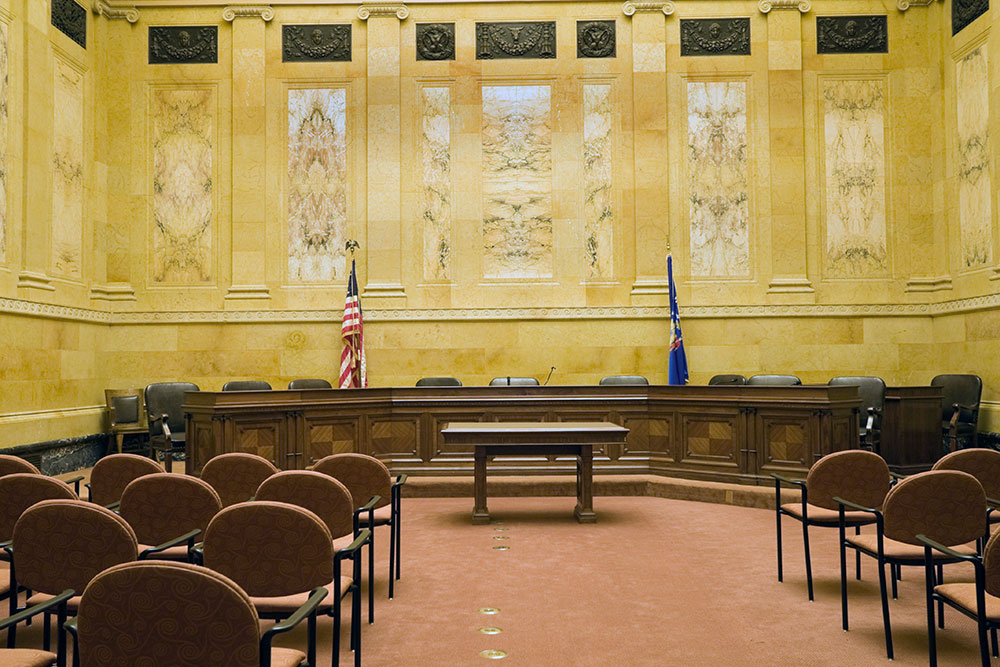 If you have a civil rights case and are ready to work with an attorney to move forward, it’s important to be aware of how long that can take. Judges’ calendars fill up quickly and therefore just scheduling the trial can often require a significant period of time. Also, certain civil rights complaints need to be filed with specific agencies, like the Equal Employment Opportunity Commission, before you can even move forward with a lawsuit. But if your rights have been violated, then you should definitely contact a civil rights attorney to find out how they can help you.
If you have a civil rights case and are ready to work with an attorney to move forward, it’s important to be aware of how long that can take. Judges’ calendars fill up quickly and therefore just scheduling the trial can often require a significant period of time. Also, certain civil rights complaints need to be filed with specific agencies, like the Equal Employment Opportunity Commission, before you can even move forward with a lawsuit. But if your rights have been violated, then you should definitely contact a civil rights attorney to find out how they can help you.
What is the timeline for a civil rights case?
If you have a civil rights case that is taken on by an attorney, those cases typically require two to three years (on average) to get to trial. That timeframe can be delayed even further if a case is appealed before trial. Generally speaking, these are the steps for taking a case to court:
-
Initial investigation and preparation for filing a lawsuit: 1-3 months
-
Initial filing and litigation scheduling with the court takes: 3-4 months
-
Motions to dismiss (briefing the court on legal issues pertaining to the claims): 4-12 months
-
Discovery, which included gathering all the evidence from third party sources, asking written and in-person questions of all of the parties and witnesses, and hiring experts to render medical and/or legal opinions: 6-9 months
-
Summary judgment (another round of briefing the court on the legal issues – this time with the evidence available to determine if we get to go to trial): 6-12 months
-
Trial prep: 2-3 months
-
The trial: this can last days or even weeks, depending on the complexity of your case
There is a tremendous amount of legal advocacy that has to happen to get a civil rights complaint past all of the layers of government official immunity, evidence sufficiency, and other challenges before a court will allow a civil rights claimant to tell their story at trial.
Where will my civil rights case be heard
We typically practice in federal court while advocating for federal civil rights. Even when we have state claims, they often involve constitutional rights violations, which are a federal in nature and therefore would go to a federal court. We practice in the state of Colorado and there is a federal courthouse in downtown Denver. During the covid crisis, most court matters are being handled remotely but will eventually return to the federal courthouse.
How to find the right attorney
If you believe your rights have been violated, whether it’s discrimination or police misconduct or any other civil rights matter, it’s important for you to contact an attorney that specializes in civil rights as soon as possible. Many claims have a statute of limitations so time is of the essence. The Civil Rights Litigation Group has handled many civil rights cases and we offer free consultations so you can find out if you have a legitimate case and/or if the attorneys here may be a good match to represent you in your case.
Call the Civil Rights Litigation Group at (720) 515-6165 or use our online contact form to schedule your free consultation with us today.
(720) 515-6165
Related articles:
Making a civil rights claim against the police in Denver
Civil rights and what makes a good case in Denver, Colorado
I filed an age discrimination lawsuit: What questions will I be asked?
What is the burden of proof in a religious discrimination lawsuit?
Is there a time limit to file a wrongful death lawsuit in Colorado?
Dec 16, 2020 | Civil Rights Law, Constitutional Rights, Police Misconduct
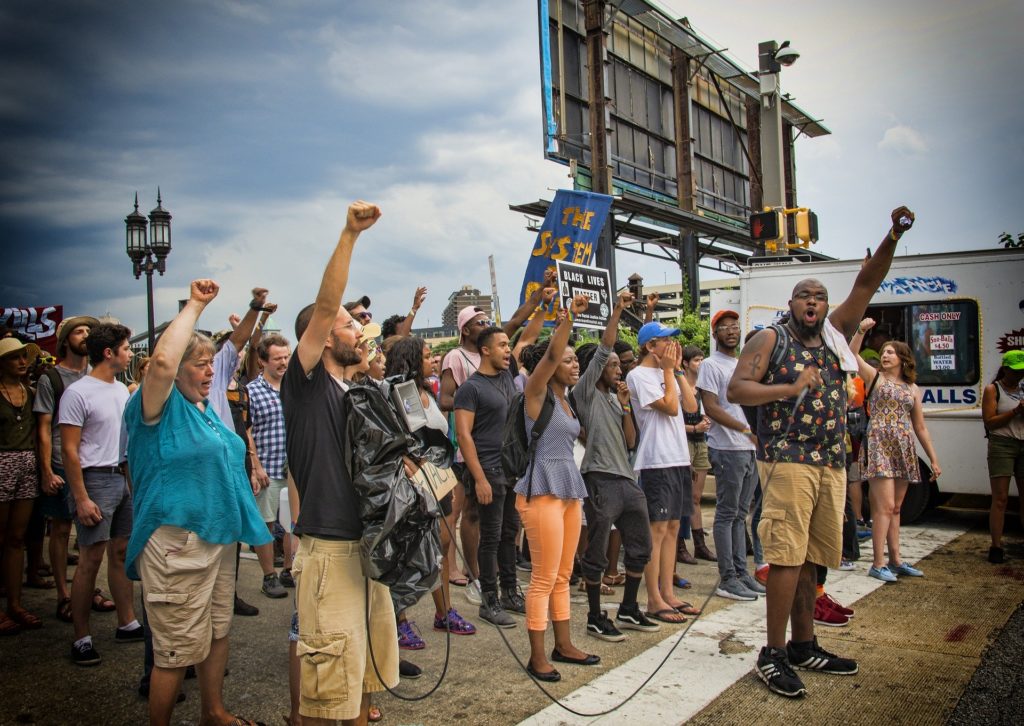 Over the summer, Denver saw weeks of protests in reaction to the death of George Floyd. And, unfortunately, some police brutality. The majority of the protests in Denver centered around the Capitol and while most people came to protest peacefully, violence erupted, and many people were injured or exposed to chemical weapons. It now appears that protesters might not be as blameworthy as had been previously reported. A recent investigation has found that police may have needlessly caused some of the violence.
Over the summer, Denver saw weeks of protests in reaction to the death of George Floyd. And, unfortunately, some police brutality. The majority of the protests in Denver centered around the Capitol and while most people came to protest peacefully, violence erupted, and many people were injured or exposed to chemical weapons. It now appears that protesters might not be as blameworthy as had been previously reported. A recent investigation has found that police may have needlessly caused some of the violence.
Police brutality and the Denver Police Department (DPD)
A recent article from Denverite (Police officers acted dangerously and anonymously during protests against police brutality and racism, investigation finds) discusses a recent investigation regarding the DPD’s response to the protests. The investigation found that the police used “unwarranted and reckless violence” and that “a lack of body camera footage and missing or vague documentation amounted to a mismanaged response from the very institution being protested.” There have been instances where the police violated their own polices by not giving orders to the crowds to disperse before using pepper spray, pepper balls, and other weapons — often recklessly. It also found that officers continued to use chemical weapons and explosives after people had started to disperse, and that some of the officers hadn’t been trained to use those weapons.
The investigation and report are from The Office of the Independent Monitor, which is “charged with working to ensure accountability, effectiveness, and transparency in the Denver Police and Sheriff disciplinary processes.” The biggest problem they found regarding the actions taken during the protests was the lack of transparency. Body camera were frequently left off. Video footage was frequently not uploaded, and officers didn’t file use-of-force reports. Many officers failed to identify themselves and/or display their badge numbers. DPD even failed to document which officers was deployed during the first four days of the protest. That makes it difficult to assess blame in the more than 100 complaints received of officer misconduct. But mostly, the report found that the Denver Police Department needs to reform its use of force, body camera practices, and officer use of specific weapons.
Were you a victim of police brutality at the protests?
If you were injured by the unnecessary force of police officers during the protests this summer, we would like to hear your story. Police brutality is illegal and officers do not have the right to violate your constitutional rights. If the police have violated your rights and caused injuries, you may be able to file a claim to recover damages fight to ensure justice is served A civil rights attorney can help you determine whether a civil rights action should be filed.
If you or a loved one are the victims of police brutality or other law enforcement abuses, call the Civil Rights Litigation Group at (720) 515-6165 or use our online contact form. Schedule your free consultation with a Denver civil rights attorney today.
720-515-6165
Additional articles and resources:
Denver police use chemicals to deter people protesting police violence as downtown erupts in chaos
Office of the Independent Monitor
Attorneys hint at massive lawsuit against Denver for police department’s response to summer protests
Additional posts on this topic:
What are my rights if I protest the police?
Police brutality cases in Colorado and your rights
How do I report police brutality in Denver?
Nov 28, 2020 | Civil Rights Law, Constitutional Rights, Police Misconduct
 When people think about police misconduct, the first thing that comes to mind is usually police brutality — and that’s understandable considering the vast amount of press coverage from cases like George Floyd this year. But there are many other ways that the police can and have engaged in illegal conduct and have violated people’s civil rights. It is important to understand what they can and can’t do so that you can protect yourself.
When people think about police misconduct, the first thing that comes to mind is usually police brutality — and that’s understandable considering the vast amount of press coverage from cases like George Floyd this year. But there are many other ways that the police can and have engaged in illegal conduct and have violated people’s civil rights. It is important to understand what they can and can’t do so that you can protect yourself.
Witness tampering and police misconduct
There have been many examples of the police getting caught in bad situations and then attempting to coerce witnesses to change how the evidence looks – for the police and the people police arrest. In Maui in 2015, Anthony Maldonado was accused of stealing $1800 from a person he had stopped. That right there is a crime, but after the victim reported it, Maldonado and several other officers tried to bribe the person to withdraw the complaint. Maldonado eventually pled guilty to witness tampering.
It is absolutely illegal for an officer to attempt use their power or authority as a police officer to attempt to get a witness to change their true testimony to something false or to unduly influence a complaining party to withdraw a complaint. But it happens all the time as officers have power and many people fall victim to their threats.
This type of misconduct can lead to criminal sanctions and even civil rights lawsuits for damages, if the conduct violates a persons’ constitutional rights.
Planting or fabricating evidence
If a case isn’t looking the way an officer thinks it should, they may decide to plant, fabricate, remove, or lie about evidence. One such example involves Richard Pinheiro, an officer in the Baltimore Police Department. His body camera actually caught him tampering with evidence at a crime scene. Unfortunately, fabricating evidence is a misdemeanor in Maryland so even though he was convicted, he is still on the job. Incidents like this also highlight the issue of bad cops being allowed to remain on the job.
Another example involved Michael Slager, an officer in North Charleston who shot and killed Walter Scott and then planted a taser near his body to back up his story that Scott was armed. Slager eventually received a 20-year sentence after a man came forward with a cellphone recording of the incident. Had a passerby not filmed the encounter, Slager likely would have gotten away with his crimes. This is one more example of why you should always record any police encounters you may witness.
This type of misconduct can lead to criminal sanctions if it is revealed, and possibly civil rights lawsuits for damages if the conduct violates a persons’ constitutional rights – such as when the lies/fabrications cause a person to be improperly jailed and/or prosecuted for a crime they didn’t commit.
When does police misconduct violate my civil rights?
While the behaviors mentioned above are definitely illegal, they do not always involve civil rights violations. For example, the most common civil rights violation applicable to manipulating or fabricating evidence is wrongful prosecution. However, in order to make that type of civil rights claim, there are several things you must be able to prove. For example, you must be able to show that the officer caused or continued a criminal prosecution where there was no probable cause to believe that a crime had been committed in the first place. You must also show that the officer created, planted, or lied about evidence that the prosecution relied on to prosecute the case. The criminal case against you must legitimately be terminated in your favor. You also have to be able to prove that the officer did all of this with malice and that it caused some sort of injury.
Reporting this type of misconduct so that appropriate criminal sanctions can be taken against officers is often the first step to getting bad officers removed from the police force. Filing civil rights lawsuits in appropriate circumstances is key to obtaining compensation when your rights have been violated. If you are faced with such circumstances, you want a lawyer that is 100% dedicated to understanding and helping you navigate these types of complexities.
We are here to help with protecting your civil rights
If you have experienced problems with your civil rights being violated by the police, please give us a call. We work diligently to protect civil rights. For a free, no-obligation consultation with the Civil Rights Litigation Group, contact our Denver CO law firm today at (720) 515-6165 or use our online contact form.
Oct 20, 2020 | Civil Rights Law, Constitutional Rights, Discrimination, Uncategorized
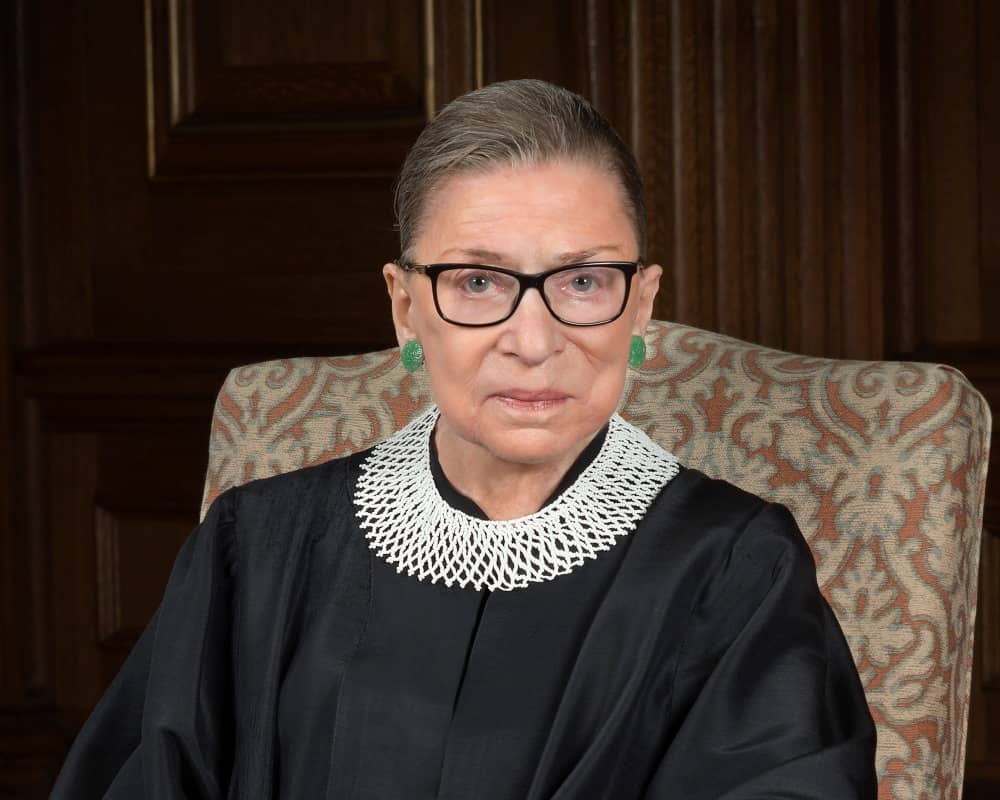 When Associate Justice Ruth Bader Ginsberg passed away last month, she left an impressive legal legacy in her fight for civil rights. Throughout her career — both as an attorney and a judge — she fought everyone to have equal protection under the law.
When Associate Justice Ruth Bader Ginsberg passed away last month, she left an impressive legal legacy in her fight for civil rights. Throughout her career — both as an attorney and a judge — she fought everyone to have equal protection under the law.
Civil rights and the Supreme court
Before becoming a member of the Supreme Court, she won five cases before them based on the equal protection clause of the 14th Amendment — specifically the section that guarantees all citizens of the U.S “equal protection of the laws.” Early in her career, Ginsberg worked with the ACLU and led their campaign for gender equality, arguing more than 300 gender discrimination cases. Before her, the amendment was primarily used to argue for racial equality, but she successfully used it to fight for gender equality. She carefully chose cases that would highlight the inequality in how men and women were treated. She found success by taking on cases where men were the ones suffering discrimination.
In 1971, she argued in Reed v. Reed that an Idaho law stating that “males must be preferred to females” when determining the administrator of an estate was a direct violation of the 14th Amendment. The reasoning was that men were better at math. The Supreme Court unanimously agreed that the law was wrong.
In 1973, she won Frontiero v. Richardson, where her client was the husband of a female Air Force officer who was denied spousal death benefits because women were not considered the primary economic providers for their families.
Again, in 1975, in Weinberger v. Weisenfeld, she sued for a male client who had been denied Social Security survivor benefits because the agency assumed that men wouldn’t need them because they earned more money that their wives ever did. By arguing that gender discrimination hurts men as well as women, she was able to use the 14th Amendment to gain more equal rights for women. Her wins also discouraged state legislatures from writing any new laws that drew distinctions based on gender.
Using the 14th Amendment for other types of civil rights cases
After Ginsberg used the 14th Amendment to argue non-race-based discrimination cases, it opened the doors for other lawyers to use it civil rights cases for the LGBTQ community. In 1996, it was used in Romer v. Evans to overturn Colorado’s infamous Amendment 2 that prohibited LGBTQ citizens from claiming discrimination.
In 2015, it was used in the landmark Obergefell v. Hodges case that required all states to recognize same-sex marriages that were performed in other states.
Fighting for civil rights on the Supreme Court
Once she was appointed to the Supreme Court, Ginsberg continued her fight for gender equality and civil rights. In United States v. Virginia, she wrote the majority opinion that struck down the admissions policy at the Virginia Military Institute. Once again using the 14th Amendment, she argued that a state-run institution could not use gender as a basis for denying women the opportunity to attend the school.
In addition to gender equality cases, she also wrote opinions about prisoner rights. In Cutter v. Wilkinson, she argued in favor of prisoners’ religious rights. And before she was on the Supreme Court, she would have all her law clerks visit prisons so they better understood what was at stake in the cases they assisted her with.
While not all of her opinions, cases and writings are considered perfectly in line with promoting civil rights, the sum of her life’s work absolutely shows the impact she had in arguing that the law should treat everyone equally. Her actions both as an attorney and a judge will be felt for generations to come.
Additional posts about civil rights and discrimination
Sexist language and subtle discrimination
Dealing with disability discrimination in the workplace
Is there such a thing as pregnancy discrimination in the workplace?
Discrimination in Denver
Your Denver civil rights attorney
If you believe your civil rights have been violated, whether through police misconduct or discrimination, our civil rights attorneys can help you. Call the Civil Rights Litigation Group at 720-515-6165 or use our online contact form. Schedule your free consultation with a Denver discrimination attorney today.
Call us at 720-515-6165
 Regardless of whether you are a member of a protected class or not, it’s important to understand the anti-discrimination laws and how they have changed over the years. In Colorado, the main one is the Colorado Anti-Discrimination Act (CADA). It originally passed in 2013 and additions to it went into effect on January 1, 2015. The main difference between CADA and the federal anti-discrimination laws is that CADA applies to all Colorado employers no matter how few employees they have. Most of the federal laws only apply to employers with at least 15 employees.
Regardless of whether you are a member of a protected class or not, it’s important to understand the anti-discrimination laws and how they have changed over the years. In Colorado, the main one is the Colorado Anti-Discrimination Act (CADA). It originally passed in 2013 and additions to it went into effect on January 1, 2015. The main difference between CADA and the federal anti-discrimination laws is that CADA applies to all Colorado employers no matter how few employees they have. Most of the federal laws only apply to employers with at least 15 employees.

 We often hear people talk about civil liberties and civil rights and how they are being violated, but do you actually know what they really are and what they afford you as an American? Simply put, they are the personal rights that are guaranteed by the U.S. Constitution and other federal laws enacted by Congress. They are designed to recognize the free-decision making required for individual autonomy and provide all Americans equal social opportunities and equal protection under the law regardless of race, religion, gender, age, or other personal characteristics. Aside from the rights and liberties expressly spelled out in the
We often hear people talk about civil liberties and civil rights and how they are being violated, but do you actually know what they really are and what they afford you as an American? Simply put, they are the personal rights that are guaranteed by the U.S. Constitution and other federal laws enacted by Congress. They are designed to recognize the free-decision making required for individual autonomy and provide all Americans equal social opportunities and equal protection under the law regardless of race, religion, gender, age, or other personal characteristics. Aside from the rights and liberties expressly spelled out in the  While the term “civil rights” generally refers to a broad scope of civil liberties and civil rights that persons in this country possess by virtue of restraint on our government, technically speaking, there are differences. Civil liberties specifically refer to basic freedoms enshrined in the Bill of Rights that create a space of freedom in which government actors are not supposed to encroach upon, while civil rights include not only space within which governmental actors should not encroach, but also affirmative laws that impose practical requirements to protect from discrimination. Many of your civil liberties are guaranteed by placing limits on what the government can do to you, such as limit your freedom of speech or imprison you without proper cause. Other civil liberties include the right to privacy, the right to remain silent, the right to a fair trial, and the right to vote, something that both women and people of color had to fight for as they were not similarly recognized in the original Constitution. Most recently, the LGBTQ community fought to guarantee the right to marry for same-sex couples, a civil liberty the original framers would likely not have ever formally considered.
While the term “civil rights” generally refers to a broad scope of civil liberties and civil rights that persons in this country possess by virtue of restraint on our government, technically speaking, there are differences. Civil liberties specifically refer to basic freedoms enshrined in the Bill of Rights that create a space of freedom in which government actors are not supposed to encroach upon, while civil rights include not only space within which governmental actors should not encroach, but also affirmative laws that impose practical requirements to protect from discrimination. Many of your civil liberties are guaranteed by placing limits on what the government can do to you, such as limit your freedom of speech or imprison you without proper cause. Other civil liberties include the right to privacy, the right to remain silent, the right to a fair trial, and the right to vote, something that both women and people of color had to fight for as they were not similarly recognized in the original Constitution. Most recently, the LGBTQ community fought to guarantee the right to marry for same-sex couples, a civil liberty the original framers would likely not have ever formally considered. If you have a civil rights case and are ready to work with an attorney to move forward, it’s important to be aware of how long that can take. Judges’ calendars fill up quickly and therefore just scheduling the trial can often require a significant period of time. Also, certain civil rights complaints need to be filed with specific agencies, like the Equal Employment Opportunity Commission, before you can even move forward with a lawsuit. But if your rights have been violated, then you should definitely contact a civil rights attorney to find out how they can help you.
If you have a civil rights case and are ready to work with an attorney to move forward, it’s important to be aware of how long that can take. Judges’ calendars fill up quickly and therefore just scheduling the trial can often require a significant period of time. Also, certain civil rights complaints need to be filed with specific agencies, like the Equal Employment Opportunity Commission, before you can even move forward with a lawsuit. But if your rights have been violated, then you should definitely contact a civil rights attorney to find out how they can help you. Over the summer, Denver saw weeks of protests in reaction to the death of George Floyd. And, unfortunately, some police brutality. The majority of the protests in Denver centered around the Capitol and while most people came to protest peacefully, violence erupted, and many people were injured or exposed to chemical weapons. It now appears that protesters might not be as blameworthy as had been previously reported. A recent investigation has found that police may have needlessly caused some of the violence.
Over the summer, Denver saw weeks of protests in reaction to the death of George Floyd. And, unfortunately, some police brutality. The majority of the protests in Denver centered around the Capitol and while most people came to protest peacefully, violence erupted, and many people were injured or exposed to chemical weapons. It now appears that protesters might not be as blameworthy as had been previously reported. A recent investigation has found that police may have needlessly caused some of the violence. When people think about police misconduct, the first thing that comes to mind is usually police brutality — and that’s understandable considering the vast amount of press coverage from cases like George Floyd this year. But there are many other ways that the police can and have engaged in illegal conduct and have violated people’s civil rights. It is important to understand what they can and can’t do so that you can protect yourself.
When people think about police misconduct, the first thing that comes to mind is usually police brutality — and that’s understandable considering the vast amount of press coverage from cases like George Floyd this year. But there are many other ways that the police can and have engaged in illegal conduct and have violated people’s civil rights. It is important to understand what they can and can’t do so that you can protect yourself. When Associate Justice Ruth Bader Ginsberg passed away last month, she left an impressive legal legacy in her fight for civil rights. Throughout her career — both as an attorney and a judge — she fought everyone to have equal protection under the law.
When Associate Justice Ruth Bader Ginsberg passed away last month, she left an impressive legal legacy in her fight for civil rights. Throughout her career — both as an attorney and a judge — she fought everyone to have equal protection under the law.